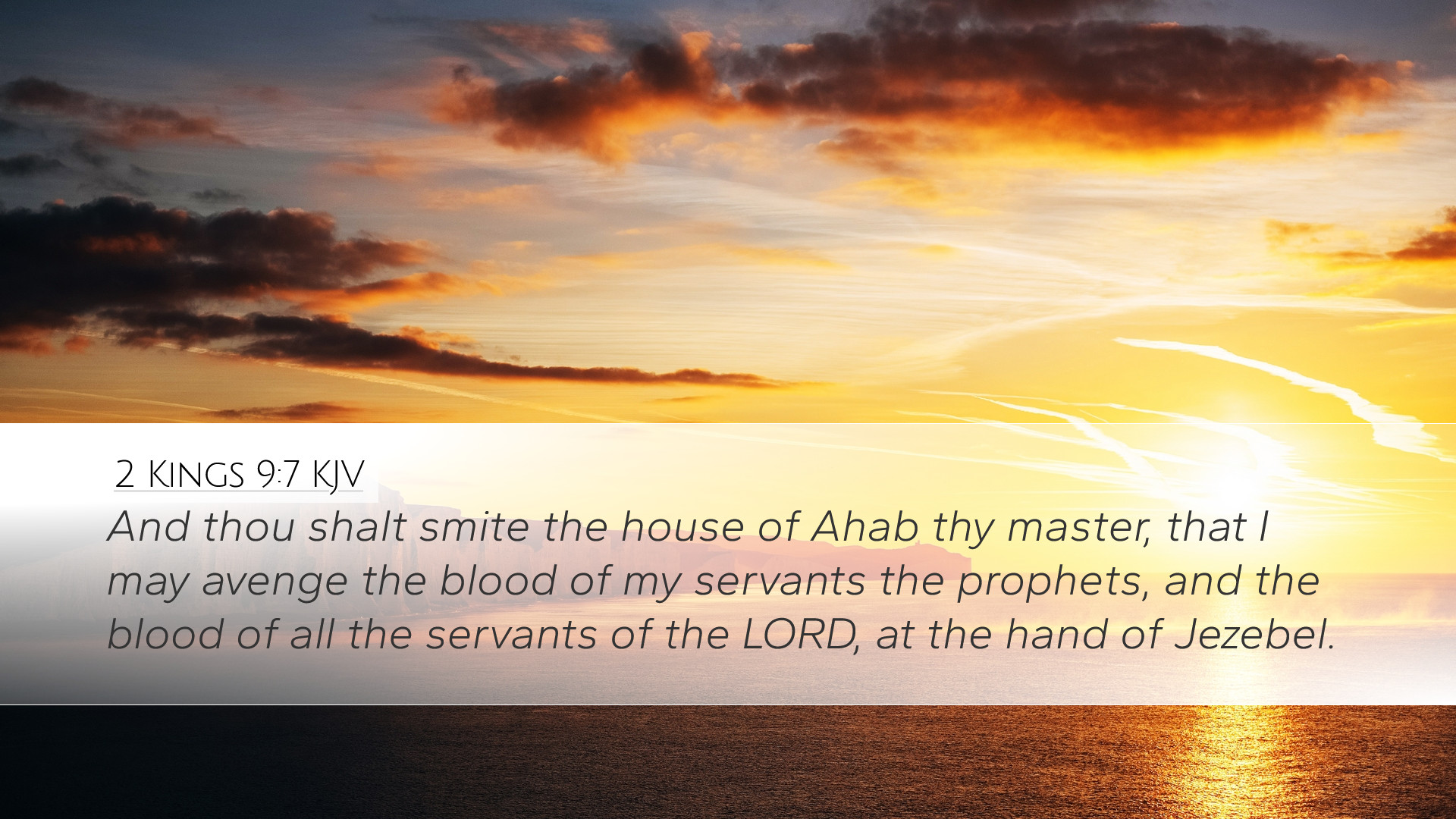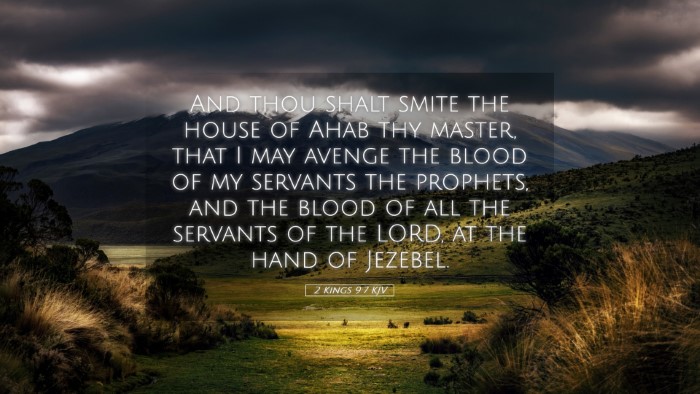Commentary on 2 Kings 9:7
2 Kings 9:7 states: "And thou shalt smite the house of Ahab thy master, that I may avenge the blood of my servants the prophets, and the blood of all the servants of the LORD, at the hand of Jezebel."
Introduction
This verse is a pivotal point in the narrative of the Kings of Israel, demonstrating God's justice and the execution of divine judgment against evil. It involves the divine directive given to the newly anointed king, Jehu, to cleanse the land of the corruption brought by the house of Ahab and Jezebel.
The Historical Context
To fully appreciate the significance of this verse, one must understand the historical and spiritual background. Ahab was a king notorious for his idolatry and the persecution of God’s prophets, largely influenced by his wife, Jezebel. God had long been patient with Israel, but the time had come for judgment.
The Avenge of the Blood
The command to "smite the house of Ahab" reflects God’s concern for justice. As noted by Matthew Henry, this directive is not merely for political purging, but a divine retribution for the shedding of innocent blood, namely the prophets and servants of the Lord.
- Blood of the Prophets: Ahab's regime was one of persecution, leading to the martyrdom of many prophets. This act was seen as an affront to God Himself.
- Blood of Jezebel: Ahab's wife, Jezebel, was particularly noted for her role in the killing of Naboth and the persecution of the prophets. God's judgment includes her direct culpability.
The Role of Jehu
Jehu's anointing is significant as it marks God's selection of a human agent to fulfill divine purposes. According to Albert Barnes, Jehu represents not just a military commander, but an instrument of divine justice. His zeal in executing God's judgment stands out as a critical aspect of his character.
- Zeal and Judgment: Jehu is characterized by his vigorous enforcement of God's will, illustrating that true leadership often requires decisive action against wrongdoing.
- Fulfillment of Prophecy: Jehu’s actions fulfill the prophecies established against Ahab, linking the prophetic word with its eventual execution.
Theological Implications
This command from God carries profound theological weight. The notions of justice, retribution, and the divine right to judge are critical in understanding the character of God as presented in the Old Testament.
- Justice of God: God’s judgment upon Ahab signifies His commitment to justice in human affairs. The killing of innocent blood calls for divine intervention.
- God’s Sovereignty: The narrative underlines God’s sovereignty over nations and leaders. He raises up and brings down rulers according to His divine plan.
Lessons for Pastors and Theologians
For pastors and theologians, this verse serves as a reminder of the seriousness of leadership and the moral responsibilities that come with it. Adam Clarke emphasizes the importance of accountability in leadership, particularly for those in governance and church leadership.
- Moral Integrity: This passage calls for leaders to uphold justice and righteousness, warning against the corruption that can ensue when moral integrity is compromised.
- Accountability before God: Leaders are not merely political figures but will answer to God for their actions, particularly when they lead others into sin.
Conclusion
2 Kings 9:7 serves not only as a historical account but as a theological treatise on God's justice and the consequences of disobedience. The divine action through Jehu highlights God's control over earthly affairs and serves as a moral framework for contemporary leaders in light of divine accountability.


